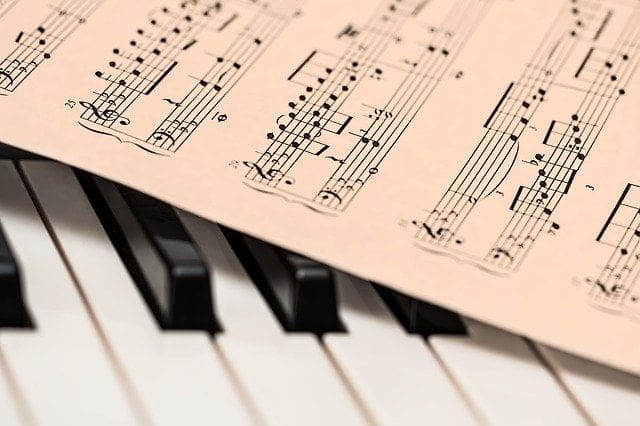If you’re looking for an easy way to change your mood, cue different genres of music.
Studies have proved that music can uplift your mood and reduce depression. It can also lower your levels of stress-related hormones like cortisol, increase blood flow in ways similar to statins and ease the pain. Music does place a positive spell on us, a spell that can heal our different mental and physical issues – it “selectively activates” neurochemical systems and brain structures associated with attention, memory and positive mood in a way that promotes beneficial changes.
Take music therapy. It has been used for all kinds of people and patients. Good musical structures allow you and those around you to soothe your nervous system, relax and heal your soul.
Currently, music therapy is the clinical and evidence-based use of music intervention to achieve individualized goals within a therapeutic relationship. It can bring up memories. Take your back to places and times that you remember fondly. And it’s healing in that way.

However, little has been said about how different genres can impact your mood. Read on to find how specific genres influence your mood and thoughts in different ways.
It’s All About Frequency
The Binaural Beats discovered in 1839 by the German physicist Heinrich Wilhelm Dove have completely altered the way we perceive music and how it’s used in today’s music therapy. What Dove discovered is that our brains are able to perceive different frequencies that induce either restfulness, alertness, relaxation and other such emotional/cognitive responses.
Binaural Beats was further studied in 1973 and blended into music – which resulted in patients experiencing a wide range of emotional and physical benefits. Since 1973, Binaural Beats has matured into a form of music therapy that can provide significant benefits for improving concentration, mood, learning attention, and sleep.
Classical Music and Motivation
When a season of cramming and finals approach, all you need is to face the music. Research on Learning and Individual Differences found that students who listened to a one-hour lecture where classical music was played in the background scored considerably higher grades on the lecture when compared to their peers who heard the lecture with no music.
Experts speculate that the music put students in an enhanced emotional state, making them more responsive to information. It’s possible that classical music provoked a change in the learning environment and urged the students’ motivation to remain concentrated during a lecture, which led to enhanced performance on the multiple-choice quiz.
What’s more, children who listened to classical music for one hour a day over a five-month period exhibited neurological changes that indicated higher levels of relaxation – even with those who were not asked to pay attention to music. Be it instrumental Christian music or just Bach, classical music works wonders on both your mood and spiritual state.
Electronic Music and Euphoria
Have you ever noticed how much better your morning run gets when you put in headphones and turn on your favorite track? That’s because music, specifically electronic music, is able to increase stimulation, as there’s a connection between motor neurons and auditory neurons.
The entire music genre is based on the idea that it can set you free and transport you elsewhere. While the utopian lyrics used infamous dance tracks and myriad subgenres might suggest that DJs behind them are always onto something.
Several examinations on the electronic music genres and those listening to it at festivals have shown a connection between the music and the feelings of euphoria and lofty moods. It looks that ravers may be right, after all.
Heavy Metal and Emotional Catharsis
If listening to heavy metal provokes angry outbursts and disturbed behaviour, then all metalheads could be considered maniacs.
Some of us have been listening to metal legends like Motorhead, Slayer or Machine Head since we were teenagers.
The reason? Heavy Metal genres have always been underground, and that’s the whole point of metal – it’s a sprout subculture different from the norm and against authority.
While listening to metal or its different subgenres, the topics of anxiety and depression would come up in conversations. We think one reason people with depression and anxiety tend to gravitate towards heavy metal is because of the emotional catharsis.
Metal is more about more exorcising those demons and less about suggesting what you should be doing. Sometimes the sadness is dialled up, sometimes, the aggression is dialled up, but they’re the two extreme emotions, and psychologists believe that people who are suffering from anxiety and depression understand what is meant by that. Overall, metalheads feel much more inspired, much more active, so the positive emotions go right up when listening to their own metal music.
Sad Music is Good for Sad People
Contrary to most popular beliefs, forcing a sad individual to listen to an endless Lana del Rey playlist isn’t going to send them into a spiral. According to scientists, listening to acts as a kind of catharsis for sad listeners, which completely explains why we feel drawn to this genre when feeling blue.
Most of the time, listeners identify with the emotions invoked by the music or the meaning of the lyrics. Often, they seek this type of identification when they want to re-experience those same emotions. Another way listeners can achieve the goal of cognitive reappraisal is by seeking out the music with a message they relate with; above that, before they can reassess the situation, they use music as a distraction.
Sad music does have a high aesthetic value – in this case, the music with high aesthetics value – one that’s believed to be particularly beautiful or good – is the most sought out.
Researchers hypothesize that the more aesthetically pleasing the music, the easier it is for listeners to concentrate on it, thereby reaching the goal of being distracted from their present situation. But while sad music can be an efficient distraction, researchers warn us that (as with almost everything) there can be too much of a good thing.











